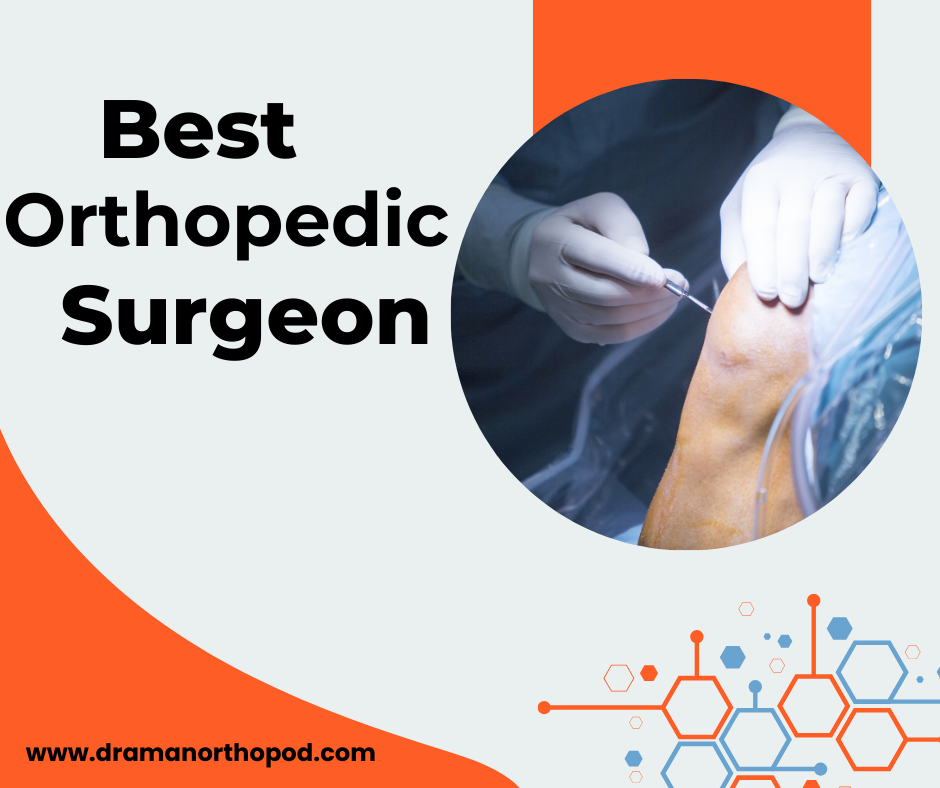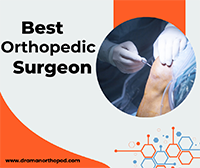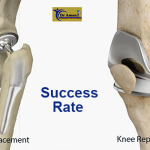
I. Introduction
In the realm of healthcare, orthopedic surgeons play a pivotal role in restoring the functionality of the musculoskeletal system. As patients seek the best care for their bone and joint-related concerns, the quest for the finest orthopedic surgeon becomes paramount. This article aims to unravel the key traits that define the best orthopedic surgeons, shedding light on the qualities that set them apart in the competitive field of orthopedic surgery.
II. Expertise and Specialization
A. Comprehensive Knowledge – In-depth understanding of the musculoskeletal system. – Stay abreast of the latest advancements in orthopedic medicine. B. Specialized Skills – Proficiency in both surgical and non-surgical interventions. – Subspecialty training in areas like sports medicine, joint replacement, or pediatric orthopedics.
III. Dedication to Patient Care
A. Empathy and Compassion – Ability to connect with patients on a personal level. – Understanding the impact of musculoskeletal issues on quality of life. B. Patient Education – Communicate complex medical information in an understandable manner. – Empower patients to actively participate in their care and recovery.
IV. Surgical Proficiency
A. Precision in Procedures – Execute intricate surgeries with precision and skill. – Minimize risks and complications through meticulous techniques. B. Adaptability – Navigate unforeseen challenges during surgeries. – Adjust techniques based on patient-specific factors.
V. Continuous Learning and Innovation
A. Commitment to Professional Development – Attend conferences, workshops, and engage in continuous education. – Embrace advancements in surgical techniques and technologies. B. Innovative Approaches – Integrate new methodologies to enhance patient outcomes. – Embrace a mindset of lifelong learning and improvement.
VI. Effective Communication
A. Clarity and Transparency – Clearly convey diagnoses, treatment options, and potential risks. – Encourage open communication between the surgeon and the patient. B. Collaboration with Healthcare Teams – Work seamlessly with other healthcare professionals. – Foster a collaborative approach to patient care.
VII. Research and Evidence-Based Practice
A. Engagement in Research – Contribute to orthopedic research to advance the field. – Stay informed about the latest scientific evidence in orthopedics. B. Evidence-Based Decision Making – Base treatment decisions on a combination of clinical expertise and the best available evidence.
VIII. Leadership and Mentoring
A. Leadership in the Medical Community – Assume leadership roles in professional organizations. – Contribute to the development of orthopedic guidelines and standards. B. Mentoring Future Surgeons – Share knowledge and expertise with aspiring orthopedic professionals. – Foster the growth of the next generation of orthopedic surgeons.
IX. Patient Outcomes and Satisfaction
A. Track Record of Success – High success rates in surgeries and interventions. – Positive patient testimonials and outcomes. B. Patient-Centric Approach – Prioritize patient satisfaction and overall well-being. – Tailor treatment plans to individual patient needs.
X. Balancing Professionalism and Approachability
A. Professional Demeanor – Maintain a high level of professionalism in all interactions. – Uphold ethical standards and patient confidentiality. B. Approachable Persona – Create an environment where patients feel comfortable and heard. – Foster a trusting relationship between the surgeon and the patient.
XI. Conclusion
The best orthopedic surgeons embody a unique combination of medical expertise, interpersonal skills, and a commitment to ongoing improvement. As patients navigate the complex landscape of musculoskeletal care, finding a surgeon who personifies these traits becomes paramount. Whether it’s surgical precision, compassionate care, or dedication to advancing the field, the best orthopedic surgeons stand out as beacons of excellence in the healthcare community.
Frequently Asked Questions (FAQs)
- What does an orthopedic surgeon specialize in?
- Orthopedic surgeons specialize in the diagnosis, treatment, and prevention of disorders related to the musculoskeletal system, including bones, joints, ligaments, tendons, muscles, and nerves.
- How long does it take to become an orthopedic surgeon?
- The path typically involves completing a Bachelor’s degree, four years of medical school, and a five-year residency program focused on orthopedic surgery.
- What types of conditions do orthopedic surgeons treat?
- Orthopedic surgeons treat a range of conditions, including fractures, arthritis, sports injuries, tendon and ligament injuries, joint problems, back and neck pain, congenital conditions, trauma-related injuries, and more.
- Do orthopedic surgeons only perform surgeries?
- No, orthopedic surgeons are trained in both surgical and non-surgical methods. They may recommend surgery when necessary but also provide non-surgical interventions and rehabilitation.
- How can I choose the best orthopedic surgeon for my condition?
- Consider factors such as their expertise, specialization, patient outcomes, and a personalized approach to care. Patient reviews and recommendations can also be helpful.
- What is the recovery time after orthopedic surgery?
- Recovery times vary depending on the type of surgery and individual factors. Your orthopedic surgeon will provide specific guidance tailored to your condition.
- Are there risks associated with orthopedic surgery?
- Like any surgery, orthopedic procedures carry some risks. Your surgeon will discuss potential risks and benefits with you before any intervention.
- Can orthopedic surgeons treat pediatric conditions?
- Yes, orthopedic surgeons can specialize in pediatric orthopedics and treat conditions like clubfoot or limb length discrepancies in children.
- How often should I see an orthopedic surgeon for preventive care?
- The frequency of visits depends on individual health and risk factors. Regular check-ups may be recommended for preventive care, especially for those with chronic musculoskeletal conditions.
- Do orthopedic surgeons use the latest technologies in their practice?
- Yes, many orthopedic surgeons embrace the latest surgical techniques and technologies to enhance patient outcomes. They often engage in continuous learning to stay abreast of advancements in the field.





